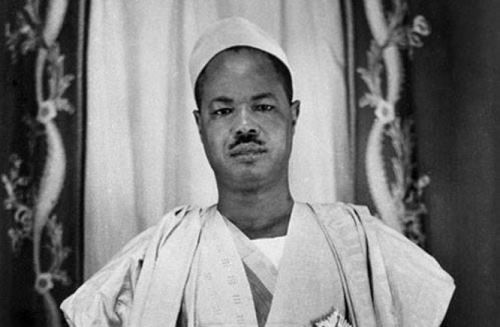He was the first president of the Federal Republic of Cameroon: Who is Ahmadou Ahidjo?
Ahmadou Ahidjo followed a foreign policy based on good relations with East and West and supported the establishment of the Organization of African Unity.

Cameroonian politician. He was born in Garoua, Northern Cameroon. His father was the head of the Muslim Fulani in North Africa. After finishing secondary school in Yaounde, he could not continue his education and started working as a radio operator in the post office. Cameroon came under the tutelage of the United Nations after World War II. The large area in the east was given to the French administration, and a small area to the west was given to the British administration. In 1947 a parliament was established in the French region. Ahico was elected to this assembly twice, in 1947 and 1952. Between 1953 and 1956, he represented his country in the Union Française Assembly, which was attended by France and the representatives of France-dependent countries. Cameroon gained autonomous status under French rule in 1957. Andre Marie Mbida, Chairman of the Cameroon Democratic Party, became prime minister. Ahico, who joined the Democratic Party in 1956 and had a great influence among the representatives of the northern region, became the deputy prime minister and interior minister. In 1958, he founded a new party, the Cameroon Unity Party. He became prime minister the same year after Mbida's resignation. His party was gathering the votes of the Muslim people of Northern Cameroon. In these years, the Association of the Peoples of Cameroon was fighting for the independence of Cameroon and the withdrawal of the French. Ahico tried to suppress the resistance by collaborating with the French military forces. Despite announcing that those who surrender would be pardoned, most of the insurgents did not surrender and armed actions continued for years.
Ahmadou Babatoura Ahidjo (24 August 1924 – 30 November 1989) was a Cameroonian politician who was the first President of Cameroon, holding the office from 1960 until 1982. Ahidjo played a major role in Cameroon's independence from France as well as reuniting the French and English-speaking parts of the country.
Ahico's program aimed at the implementation of autonomy, a proposition for full independence, union with British Cameroon, and cooperation with France. In 1960, French Cameroon was granted independence. A year later, with the referendum held in British Cameroon, the southern part of this region was united with independent Cameroon and the Federal Republic of Cameroon was established. In the elections held shortly after independence, Ahico was elected the first president. In 1962, he had the heads of four opposition parties, especially the Union of the Peoples of Cameroon, arrested. The Cameroon Unity Party became the only party in Eastern Cameroon. In 1966 the Unionist Party and the western Cameroon National Democratic Party merged; Ahico became the founder and chairman of the new party, which became the Cameroonian National Union. He was elected president for the fifth time in the 1980 elections. He resigned from his post in 1982.
Cameroon signed a military aid treaty with France after independence. According to this treaty, France kept its troops in Cameroon until 1964 and sent military experts and advisers for a long time. Ahico implemented a program that included domestic and foreign private initiatives as well as the state in the economic field. After independence, mines, power stations, most of the roads and railways, postal and telegraph services, agricultural test stations, and part of the land were nationalized. On the other hand, the state joined mixed companies as a partner of foreign capital in the fields of agriculture, industry, foreign trade, and banking.
